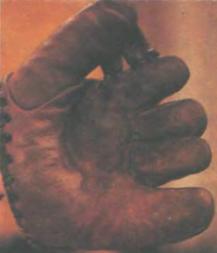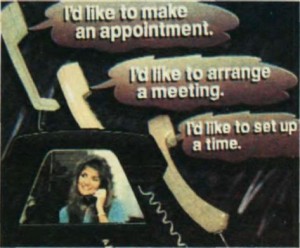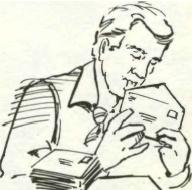Family Album USA 15 — Second Honeymoon
Смотреть онлайн в хорошем качестве курс английского языка — сериал Family Album USA 15 серия “Second Honeymoon” с английскими субтитрами:
Упражнения и Словари к 15 эпизоду:
In this episode, you will study . . .
VOCABULARY
inn
honeymoon
bat cony
patchwork quilt
bellhop
heavenly
GRAMMAR AND EXPRESSIONS
verbs + gerunds or infinitives
am, is, are + being
idioms:
a good sport
face the truth
give up
took the liberty of…
Compliments of…
U.S. LIFE
- Who started the first chain of hotels in the U.S.?
- What is a popular American folk art?
YOUR TURN
- Do you enjoy staying in hotels?
- Which folk arts are popular in your country?
fifth wedding anniversary: a celebration of being married for five years
bouquet: a bunch of flowers. This is a French word that is very common in English. The pronunciation is [bo ka] or [boo ka].
Just because. = I can’t tell you a reason.
fast asleep: sleeping deeply
If you had your choice of all the places in the world, where would you choose to spend our anniversary? This sentence is an example of the present unreal conditional verb tense. In this kind of sentence, you imagine that something is true now. In the present unreal conditional, the verb after the word if is in the past form (had) and the main verb (choose) has the auxiliary would before it. (Later in this episode and in Episode 24, you will study more about the use of this grammar.)
inn: a small hotel, often in the country or on a main road
honeymoon: a vacation that a man and woman take soon after they get married
second honeymoon: a vacation that a married couple takes long after they get married. Couples sometimes go on a second honeymoon when they want to remember the good times that they had when they were first married.

No buts. = Don’t disagree with me.
Mar: Marilyn. This is Richard’s nickname for his wife.
It’s time (you and I had a romantic weekend alone together). = I think it’s time for (us to have a romantic weekend alone). After the expression It’s time (+ subject + verb), use a verb in the past form {had) although it has a future meaning.
tempting: inviting; attractive
make a reservation: arrange to stay at a hotel. You also make a reservation for theater tickets, airline tickets, or for a restaurant to hold a table for you.
Hudson River: a river about 315 miles long in the eastern part of New York State. The river is named for Henry Hudson, an English explorer of the area.
room clerk: a hotel worker who registers guests and chooses rooms for them
double room: a hotel room with two beds or with one bed big enough for two people. A hotel room with one bed for one person only is a single room.
Hold it. = Wait.
See if . . . = Find out if…
hold: not hang up the telephone
checking: trying to find out
daily rate: the cost each day
Activities
AT A SMALL HOTEL
Imagine that you are calling the Watermill Inn to find out about their accommodations, the types of rooms and services that the hotel offers. Complete the telephone conversation from this «Focus In» segment by using the words and phrases from the box at the right. You have already studied some of this «hotel vocabulary» in Act I. You will study more of these words and phrases in Acts II and III. Write the correct answer on each blank line.
- Clerk: Good afternoon, Watermill Inn. May I help you?
- You: Hi. I’d like some information about the inn.
- Clerk: Of course. We’re located in the town of Rhinebeck, just a two-hour drive from the city.
- You: What kinds of accommodations do you have?
- Clerk: For a very special vacation, we have a large honeymoon (1) _______.
- You: Well, I —
- Clerk: if you prefer, you can reserve a smaller (2) _______.
- You: That’s probably—
- Clerk: Or a double room with a fireplace and a balcony.
- You: I really think —
- Clerk: And (3)______ of the Hudson River from the balcony is absolutely gorgeous!
- You: I don’t really—
- Clerk: Enjoy beautiful views? Well, the town of Rhinebeck is the perfect place to take an afternoon walk.
- You: I do like to—
- Clerk: And, of course, after all that walking, you’ll want to relax and have a delicious dinner in our romantic dining room.
- You: Well, I don’t know. I may be—
- Clerk: —too tired to come to the dining room? Don’t worry. Our friendly (4) ______ is always ready to bring delicious meals to your room.
- You: Oh, how nice!
- Clerk: Nice? Our (5) _____ , Mrs. Montefiore, is the nicest person you’ll ever meet. She’s been making the Watermill Inn a comfortable place for guests for over twenty years.
- You: What time is—
- Clerk: Check in? Well, you can (6) ______ any time after one P.M. and (7) ______ any time before twelve noon. Now, when would you like your (8) _______, and what type of room would you like?
- You: I’m not quite sure—
- Clerk: You can be sure that the Watermill Inn is the finest small hotel in all of New York State.
- You: New York? I thought I called Florida!
JUST IMAGINE
Use the present unreal conditional verb tense to imagine that something is true now. Use a past verb form after if, and would before the main verb in the simple form. For example:
- If I had time, I would go on vacation. (But I really don’t have time.)
- If I knew the telephone number, I would call the hotel right now. (But I really don’t know the telephone number.)
- If I didn’t love you, I wouldn’t want to be with you. (But I really do love you.)
Do not use was after if in present unreal conditional sentences. Use were instead:
- If I were you, I would make a reservation immediately. (But I’m really not you.)
Conditional sentences with if are also correct in this order:
- I would make a reservation immediately if I were you.
Complete each of the following sentences by using the correct form of the verb in parentheses. Write the correct answer on each blank line. Some answers need a negative form.
- If Marilyn ____ (have) her choice, she ____ (celebrate) her second honeymoon at the Watermill Inn.
- If Ellen ____ (be) able to baby-sit, Richard and Marilyn ____ (be) unable to go away alone.
- Richard ____ (call) another hotel if the Old Country Inn ____ (have) any rooms available.
You call this (clean)? = I don’t agree that this (is clean).
get a look at: look at quickly
view: the scene outside
enjoy looking. After the verb enjoy, use an -ing verb form (looking). This use of the -ing verb form is called a gerund.
parking lot: a place to leave cars outside
blaming (yourself): feeling that (you) are responsible for something bad that happened; feeling that something is (your) fault
want to play. After the verb want, use an infinitive verb form (to play).
room service. Many hotels offer room service. This means that you can call a hotel telephone number from your room to order food or drinks to be brought there.
figure out: to find a solution or answer; decide
I beg your pardon? = Excuse me? This is a formal expression. Here, it means «What did you say?»
love walking. After the verb love, you may use a gerund or an infinitive verb form. I love walking and I love to walk are both correct.
You’re being. . . = Right now, your actions show that you are . . .
Use am, is, or are + being (instead of am, is, or are alone) to refer to someone’s temporary action, or present behavior. For example, compare the following statements by a mother to her young son: You’re a good boy. (You are good all the time.) You’re being a good boy. (Right now, you are acting in a good way.)
(a) good sport: someone who doesn’t complain about having bad luck or losing
face the truth: to be honest with (ourselves)
stick it out: to stay until a bad situation ends
admit: to confess; say what you really think or feel
check out: to pay for a hotel room and leave. When you first arrive to stay at a hotel, you check in at the front desk. At check-in time, you usually tell the clerk the number of nights you plan to stay, and you sign an agreement to pay for the room.
You will never guess. = You won’t believe this. Use this expression to show that you have some surprising information.
give up: to stop trying (to do something) Here, Richard means that he can’t guess.
opening: a vacancy; an available room
suite: a group of connected rooms. Suite has the same pronunciation as sweet. Many hotels have a «honeymoon suite,» rooms designed especially for newly married couples.
stop raining. After the verb stop, use an -ing verb form (raining) if the action of that verb stops. Use an infinitive if the subject of the sentence stops doing something else. Compare the following two sentences: I stopped talking to my friend. (I was talking to my friend, and then I stopped.) I stopped to talk to my friend. (I was doing something, and then I stopped doing that in order to talk to my friend.)
YOUR TURN
- Do you like staying in a hotel?
- Which type of hotel do you prefer: a large modern one or a smaller old-fashioned inn?
- Are hotel chains popular in your country?
Activities
VERBS + GERUNDS OR INFINITIVES
After the verbs enjoy, keep, and suggest use an -ing verb form (a gerund). After hope, want, and need, use to + a simple verb form (an infinitive)
Complete each of the following sentences with the gerund or infinitive form of one of the verbs from the box below. Write the correct form of the verb on each blank line.
1. Marilyn and Richard hope _____ a wonderful weekend.
2. Richard doesn’t enjoy _____ at the view of the parking lot.
3. It keeps _____ all night long.
4. Richard wants _____ tennis.
5. Marilyn suggests _____ to the coffee shop.
6. They need _____ breakfast.
IDIOMS IN ACTION
Use the idioms from the box below to complete the following comic strip. Write the correct answer on each blank line. The first answer is given.
innkeeper: the manager of an inn
patchwork quilt: a cover for a bed, made of small pieces of material sewn together
Teddy Roosevelt. Theodore Roosevelt was the 26th President of the United States. He served as President from 1901-1909. Teddy is the nickname for Theodore.
in love: feeling love
Would a professional photographer be without a picture? Richard means, «I’m a professional photographer; therefore, of course, I have a picture.»
front office: the main office of the hotel
took the liberty of (doing something): (did something) without asking for permission.
bellhop: a hotel worker who carries bags and does other things to help the guests. You may also use the names bellboy and bellman.
U.S. LIFE
Making patchwork quilts was a popular American folk art. As a folk art, it was practiced by the country’s ordinary people. Although traditional patchwork quilts are still made by hand, today, most quilts in the U.S. are made by machine.
YOUR TURN
Which folk arts are popular in your country?
Compliments of (the Watermill Inn). = (The Watermill Inn) will pay for it.
hotcakes: pancakes
maple syrup: a thick, sweet liquid that comes from a maple tree
scrambled eggs: eggs fried with the white and yellow parts mixed together
cloves: A clove is a kind of spice that comes from the flower of a tropical tree.
homemade: made at home
buttermilk biscuits: A biscuit is a small bread that is baked quickly. Buttermilk is the sour liquid that remains after cream or milk has been made into butter.
check on: to find out about (the condition of someone or something)
heavenly: very pleasing; giving a lot of happiness
George Washington. George Washington was the first President of the United States. He served as President from 1789-1797.
Activities

In this «Focus In» segment, you hear a song called «Every Photograph.» The song is about photographs that bring back memories. Look at the photographs below. Can you remember these scenes from Marilyn and Richard’s second honeymoon?
A. Help to design an album of photographs. Show the correct order of events by matching each photo at the left with the correct number in the album. Write 7, 2, 3, 4, or 5 on the line below each picture at the left.
B. In the space below each photograph in the album, write a caption, or description. Choose the correct quotation from the list below to use for each caption.
- «We’d like to make a reservation for this weekend.»
- «What’s this for? «
- «Let’s call room service …”
- «Now this is my idea of a good time!»
- «Oh, he’s adorable!»












